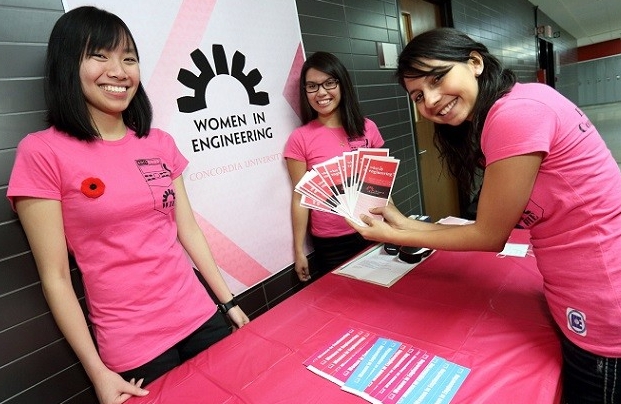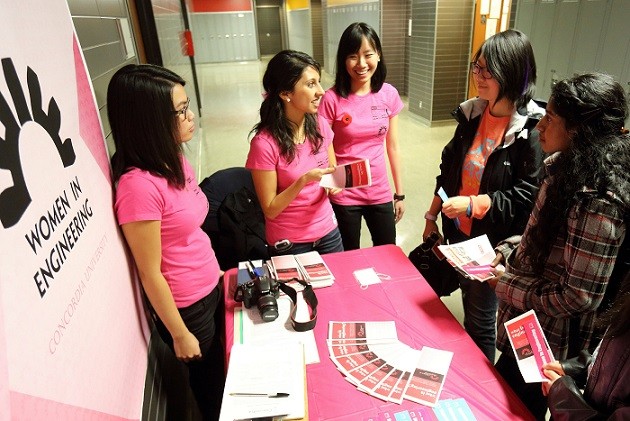By Malcolm McLean
“Students usually join the Women in Engineering (WIE) association because we provide a comfortable and nurturing environment as well as promote female equality and success through our events,” observes Sarah Farahdel, President of Concordia’s Women in Engineering association. “In engineering, there is still a preponderance of males, although it varies from program to program. It is still a field that few women even think of getting into.”
WIE events include social frosh initiation, beach day, wine and cheese networking, workshops and seminars. “We try to incorporate as many men into our events as possible, certainly not excluding them. While on some campuses men are excluded and a women-only space is created, at Concordia WIE we’ve opted to encourage women into the mainstream, and support them in doing that.
We attend other events and we encourage our members to join other societies. We support other associations, they support ours.”
Farahdel thinks it’s especially good to “get involved with hands-on societies, for example, SAE, to get out there and collaborate with others as you find them, because that’s what you need to do in the real world.” Learning how to get along with mixed groups, in teams and associations, is crucial preparation for the future, she adds.
WIE works with engineering students to help them obtain academic and financial support from the university. It is also deeply involved in outreach activities. “We’re talking to elementary schools, high schools, CEGEPs. For example we have a weekly program at Roslyn School in Montreal, with two or three people at each session. We do curriculum with hands-on activities, addressing girls and boys of a certain age in a particular classroom and encouraging them to pursue engineering. Girls respond strongly to this kind of encouragement. It opens the door of engineering in their minds; meanwhile, boys also have their minds opened by seeing women involved in engineering.”
WIE also emphasizes bridge building. “Speaking very generally, there is a tendency for men to put their ideas forward more aggressively, while women tend to hold back. We are there to help them come forward and give their input.” Girl/boy competitions are not their favourite approach, she adds, but cannot resist mentioning a boat-building competition, a challenge to apply knowledge of physics to make a boat from aluminum foil: “The girls won!”
 Kimberly Tran, Catherine Tuyet Mai Phan and Sarah Farahdel from Women in Engineering. Photo: Owen Egan.
Kimberly Tran, Catherine Tuyet Mai Phan and Sarah Farahdel from Women in Engineering. Photo: Owen Egan.
 Catherine Tuyet Mai Phan, Sarah Farahdel with prospective students at Open House 2014. Photo: Owen Egan.
Catherine Tuyet Mai Phan, Sarah Farahdel with prospective students at Open House 2014. Photo: Owen Egan.